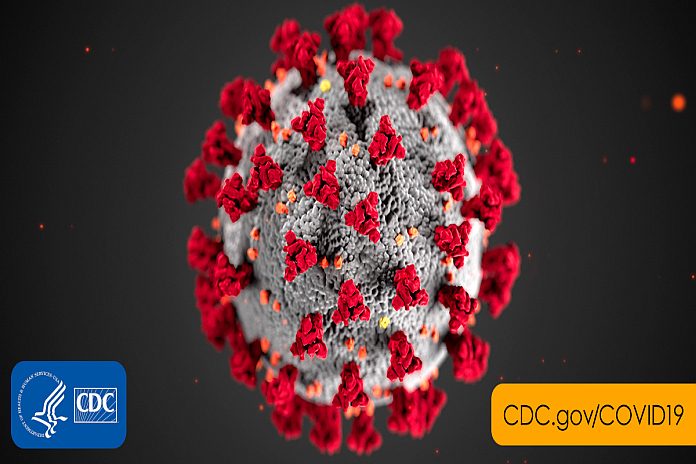By Caribbean News Global contributor
CASTRIES, St Lucia – Anxiety widens in Saint Lucia amid COVID-19 readiness and executable plans, with confirmed cases in the Caribbean region of St Martin, St Barthélémy, the Dominican Republic, and reportedly Martinique is said to have confirmed its first case. Around the world, several more cases are being diagnosed. Together, these compounds travel restrictions and economic hardship.
Responding to COVID-19 is not the time for gamesmanship, petty conversations and the art of politics, but for strong leadership to implement emergency plans, national action plans, and information strategy.
“The fight against rumours and misinformation is a vital part of the battle against this virus,” WHO chief Tedros Adhanon Ghebreyesus said Thursday. “We rely on you to make sure people have accurate information about the threat they face, and how to protect themselves and others.”
He continued: “This epidemic can be pushed back, but only with a collective, coordinated and comprehensive approach that engages the entire machinery of government.
“We are calling on every country to act with speed, scale, and clear-minded determination. Although we continue to see the majority of cases in a handful of countries, we are deeply concerned about the increasing number of countries reporting cases, especially those with weaker health systems.
“However, this epidemic is a threat for every country, rich and poor. As we have said before, even high-income countries should expect surprises. The solution is aggressive preparedness.
“We’re concerned that some countries have either not taken this seriously enough or have decided there’s nothing they can do. We are concerned that in some countries the level of political commitment and the actions that demonstrate that commitment do not match the level of the threat we all face.”
COVID-19 readiness calls for the expedition of crisis planning and to “activate your emergency plans through that whole-government approach,” WHO chief Ghebreyesus stated. “Educate your public, so that people know what the symptoms are and know how to protect themselves and others. Increase your testing capacity. Get your hospitals ready. Ensure essential supplies are available. Train your health workers to identify cases, provide careful and compassionate treatment, and protect themselves from infection,” he said.
Last Sunday, director of the Washington-based Pan-American Health Organization (PAHO) Dr Carissa Ettiene told a CARICOM news conference that PAHO has some concern for countries with weak health systems.
“Our work in the region as PAHO is to strengthen member states’ capacity to detect, to contain and to manage cases. We believe there is some capacity in the region that is necessary to ensure maximum capacity in the Caribbean region,” Dr Etienne said.
Governor of the Eastern Caribbean Central Bank (ECCB) Timothy Antoine has raised concerns over COVID-19 presents in the Caribbean.
“We are very concerned over the incidents of the Novel Coronavirus which as we know is now in the Caribbean,” adding “It is a very serious situation which we are paying much attention to. We want to ensure that all of our member countries, all 8 had the capacity,” Antoine stated. “Because if you have sent it to Trinidad or some other country outside of the region there is going to be a delay, so you want to speed that up so you can establish status…We are very mindful that the health issue has implications for the economy,” he said.
Centers for Diseases Control and Prevention detailed technical guidance, while the World Bank and the International Monetary Fund (IMF) ‘have both made funds available: “Through this new fast track package, the World Bank Group will help developing countries strengthen health systems, including better access to health services to safeguard people from the epidemic, strengthen disease surveillance, bolster public health interventions, and work with the private sector to reduce the impact on economies.
IMF – World bank group ready to support COVID-19 member countries
Concern that small island states feel overwhelmed by fear, short and long-term preparedness, Saint Lucia’s opposition leader, Philip J. Pierre said, “questions on the state of preparedness of our country to address COVID-19 critical policy issues and the lack of leadership is inadequate to improve weak health systems and to ensure maximum capacity.”
In a statement released Thursday, March 5, 2020, opposition leader Pierre, urged Saint Lucians to be safe, smart and informed. On the matter of COVID-19 readiness, he requested that the government of Saint Lucia achieve world-class standards of preparation, give attention to the following:
- Does Saint Lucia possess any onshore testing facilities for the virus to make informed and science-driven decisions?
- Can the prime minister release a National Plan of Action that provides as comprehensive as possible how we will respond to any severity in cases?
- What are the plans for the elderly? Is there any special training for home caregivers and additional support to make sure our elderly receive that highest-level of priority?
- What are the plans for the homeless and people who are on the streets?
- Are the schools being provided with soap and other disinfectants and ensure there is a constant supply of water at all schools in the event of an outbreak?
- If there is an outbreak, at what point will schools be closed?
- If there is an outbreak and schools are closed what happened to students who will be sitting CSEC and CAPE exams?
- If there is an outbreak at a ministry, what would be the response? Do we have a public service response plan?
COVID-19 is a serious disease, deadly – still, little is known of Saint Lucia’s strategic response plan, opposition leader Pierre queried the following:
- Are our medical personnel adequately equipped with protective gear and other equipment?
- Have we organized adequate isolation and quarantine facilities?
- Is there adequate monitoring at all points of entry.
- Has the government prepared a substantial information dissemination plan for the public?
- How is our cruise industry being affected by the absence of testing equipment in Saint Lucia?
- Is it true that Carnival Fascination has cancelled visits to Saint Lucia for the next two months at a minimum?
According to WHO chief Ghebreyesus: “Plans that start with leadership from the top, coordinating every part of the government, not just the health ministry – security, diplomacy, finance, commerce, transport, trade, information and more – the whole government should be involved,” he said.




